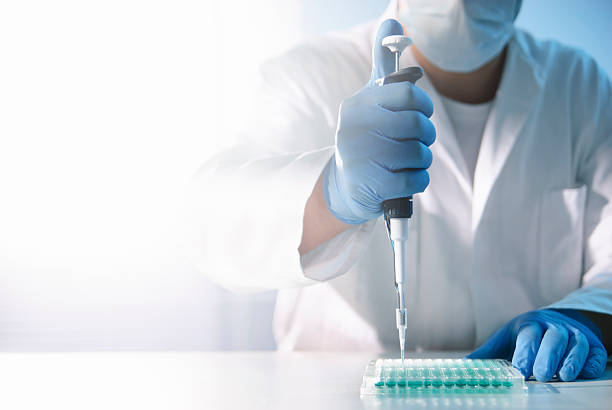Understanding the Impact of Lab Testing on the New COVID-19 Outbreaks in the USA

In this blog, we’ll delve into the latest outbreaks in the USA and explore the critical role that lab testing plays in tracking and managing the spread of the virus
Understanding the Impact of Lab Testing on the New COVID-19 Outbreaks in the USA
As the COVID-19 pandemic continues to evolve, the United States faces new outbreaks that demand our attention and a comprehensive understanding of the situation. In this blog, we’ll delve into the latest outbreaks in the USA and explore the critical role that lab testing plays in tracking and managing the spread of the virus.
The Current State of COVID-19 in the USA
The COVID-19 pandemic has been a long and challenging journey for everyone. In recent months, we’ve seen various waves of the virus affecting different parts of the country. As of September 2023, the USA is experiencing new outbreaks in several regions. These outbreaks underscore the need for vigilance and effective strategies to control the virus’s spread.
Lab Testing: A Vital Tool in the Fight Against COVID-19
Laboratory testing for COVID-19 is one of the most valuable tools we have to understand and combat the virus. Here’s how lab testing impacts the management of new outbreaks:
- Early Detection: Lab testing helps identify individuals infected with COVID-19, including those who may be asymptomatic carriers. Early detection allows for prompt isolation and treatment, helping to prevent further transmission.
- Contact Tracing: Positive test results are crucial for contact tracing efforts. When someone tests positive, health authorities can quickly identify and notify individuals who may have been exposed. This helps break the chain of transmission.
- Strain Identification: Lab tests can determine the specific variant of the virus responsible for an outbreak. Tracking variants is essential for understanding their characteristics and adjusting public health measures accordingly.
- Monitoring Vaccine Efficacy: Labs play a crucial role in analyzing the effectiveness of vaccines against emerging variants. This information helps guide vaccination strategies and booster shot campaigns.
The Role of PCR and Rapid Antigen Tests
Two common types of tests used for COVID-19 detection are PCR (Polymerase Chain Reaction) and rapid antigen tests. Each has its advantages:
- PCR Tests: These tests are highly accurate and can detect the virus’s genetic material. They are ideal for confirming infections, especially in individuals with symptoms.
- Rapid Antigen Tests: These tests provide quicker results and are valuable for screening purposes, such as routine testing in schools and workplaces. They are less sensitive than PCR tests but are still effective in identifying infectious individuals.
The Importance of Widespread Testing
Widespread and accessible testing is critical for controlling outbreaks. To achieve this, governments and healthcare providers must:
- Expand Testing Sites: Increase the number of testing sites, including mobile units and drive-through locations, to make testing convenient and accessible for all.
- Promote Testing Awareness: Encourage individuals to get tested, especially if they experience symptoms or have been in close contact with a confirmed case.
- Ensure Timely Results: Rapid turnaround times for test results are essential to quickly isolate infected individuals and trace their contacts.
- Continued Research: Labs should continue researching and developing new testing methods to improve accuracy, speed, and ease of use.
Conclusion
As the USA grapples with new COVID-19 outbreaks, lab testing remains a cornerstone of our pandemic response. It empowers us to detect cases, trace contacts, understand variants, and evaluate vaccine effectiveness. Widespread and accessible testing, along with continued research and public awareness, will help us navigate these challenging times and work towards a healthier and safer future.
Stay informed, get tested if needed, and follow public health guidelines to protect yourself and your community during these ongoing outbreaks. Together, we can overcome the challenges posed by COVID-19.

